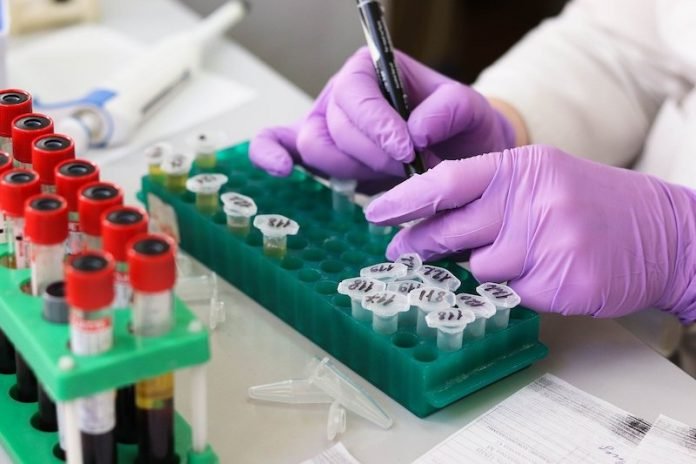
In a new study, researchers have developed a powerful therapeutic platform that uses a modified virus for the treatment of pancreatic cancer.
By using the virus in combination with other drugs, the treatment strongly extended survival in preclinical models of pancreatic cancer.
The research was conducted by a team from Queen Mary University of London and Zhengzhou University.
Viruses that can selectively infect and destroy cancer cells, known as oncolytic viruses, are a promising new class of treatment for cancer.
Oncolytic viruses kill cancer cells and elicit strong anti-tumor immune responses.
However, current oncolytic virotherapy is unable to produce a long-term cure in patients, and the treatment has to be delivered directly into the tumor—a route that is not feasible for deeply embedded tumors, or tumors that have spread around the body.
In the study, the team built a novel platform for the treatment of pancreatic cancer using an oncolytic Vaccinia virus.
The platform improves the virus’ safety, ability to spread within and between tumors, and capacity to activate potent anti-tumor immune responses.
The study built upon previous work by the team, which developed a modified Vaccinia virus through the deletion of two viral genes.
The team created this effective treatment platform that specifically targeted pancreatic tumors and activated the immune system against the tumors.
This platform provides a powerful therapeutic to target pancreatic cancer, significantly improving the survival rate and prevention of cancer recurrence.
This platform is also suitable for the treatment of other human tumor types.
Pancreatic cancer is the 11th most common cancer in the UK; however, it has the lowest survival rate of all the common cancers, with less than 7% of patients surviving their cancer for five years or more.
Pancreatic cancer is often diagnosed in the late stages of its development when the cancer is advanced or has spread to other parts of the body, making treatment difficult.
Chemotherapy and radiotherapy alone are relatively unsuccessful in treating pancreatic cancer.
While surgery to remove the tumor offers the best chance of survival, more than 80% of patients ultimately die of the disease due to local recurrence and/or distant metastasis.
One author of the study is Dr. Louisa Chard Dunmall.
The study is published in the Journal for ImmunoTherapy of Cancer.
Copyright © 2021 Knowridge Science Report. All rights reserved.



